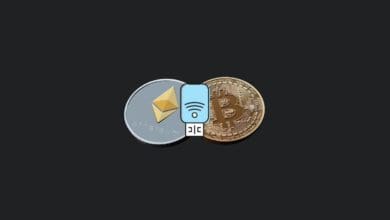Best Hot Cryptocurrency & Bitcoin Wallets, Top 14 Wallets
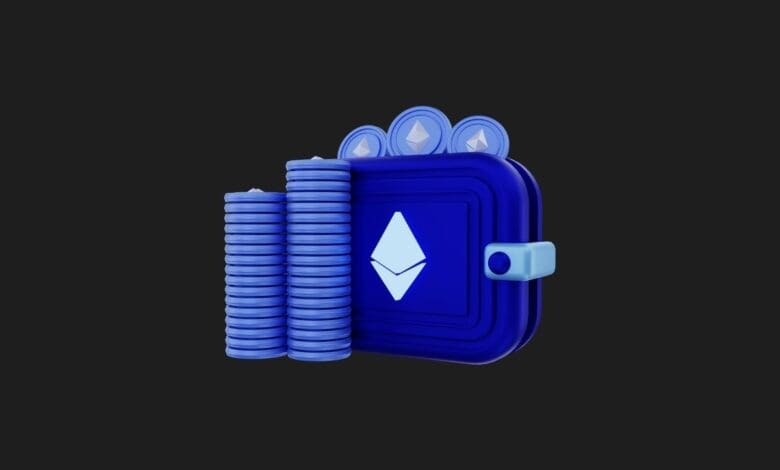
Are you considering investing in cryptocurrency in 2023? If that’s the case, selecting the appropriate cryptocurrency wallet and understanding how to secure it are crucial steps. Before we dive into this content, let’s recall a pivotal maxim from the cryptocurrency world: Not your keys, not your coins.
To safeguard your cryptocurrencies, begin by exploring the list of top hot crypto wallets. Cryptocurrency wallets, while fundamentally designed to securely store, receive, and send cryptocurrencies, have expanded their functionalities with the evolution of smart contracts and DeFi capabilities.
With a plethora of options available in the market, we will delve into comparing each wallet by highlighting its advantages, disadvantages, and key features.
Comparison of the Best Cryptocurrency Wallets

Before delving into the review of cryptocurrency wallets, it’s essential to understand the criteria we’re using for comparison. In this discussion, we’ll focus exclusively on hot wallets, meaning online wallets. We’ll evaluate wallets based on the platforms they support, their cost, their security level, and the variety of cryptocurrencies they can hold. We aim to recommend different wallets tailored for frequent traders, DeFi enthusiasts, and beginners looking to securely store their long-term investments.
According to a research report by Grand View Research, the global crypto wallet market was valued at $6.97 billion in 2021. It is projected to expand at a compound annual growth rate (CAGR) of 24.4% from 2022 to 2030.
1.ZenGo
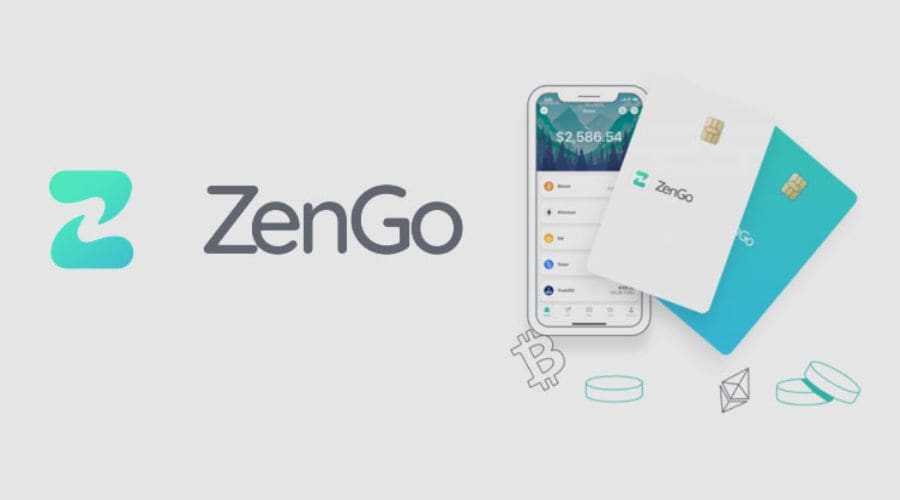
ZenGo, established in 2018, is a prominent cryptocurrency wallet that prioritizes a mobile-first approach, making it accessible for both Android and iOS users. It employs a three-factor authentication (3FA) method and enhances its security through confidential multi-party computation (MPC). Offering multi-chain compatibility, ZenGo supports hundreds of cryptocurrencies.
A notable feature of ZenGo is its built-in Web3 wallet, designed to block malicious transactions.
Advantages of ZenGo:
- Intuitive user interface, ideal for beginners.
- Free to download, with no cost for wallet creation or usage.
- No subscription fees required.
- Simplified wallet creation process.
Disadvantages of ZenGo:
- It does not qualify as a fully non-custodial wallet.
- Lacks compatibility with PC operating systems.
2.Coinbase Wallet
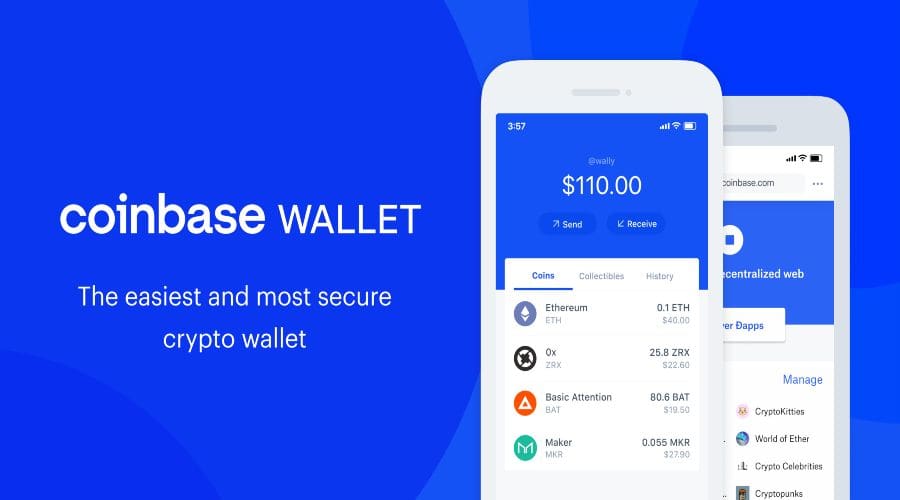
Coinbase Wallet is renowned for its combination of robust security features and an intuitive design, making it particularly appealing to beginners. For those with minimal experience in storing or trading cryptocurrencies, the Coinbase Wallet offers a user-friendly gateway. With support for over 6,000 cryptocurrencies, it accommodates Bitcoin, Litecoin, XRP, ERC-20 tokens, and much more.
This wallet facilitates connections with major bank accounts and simplifies the crypto trading process through its easy-to-navigate interface. Coinbase allows users to customize transactions to minimize costs. Additionally, Coinbase stands out as one of the select free crypto wallets capable of housing an expanding NFT collection alongside a wide array of crypto assets.
Advantages of Coinbase Wallet:
- Direct buying and selling transactions via connection to the Coinbase exchange.
- Enhanced security with two-factor authentication support.
- Multi-signature support for additional security.
- User-friendly Coinbase interface.
- Integrated staking and earning opportunities.
- Compatibility with over 5,000 cryptocurrencies.
- NFT storage capabilities.
- Customizable transaction fees for economic flexibility.
Cons of Coinbase Wallet:
- Customer support can be slow to respond.
- Lacks a dedicated desktop application, though it supports browser extensions and mobile apps.
- Requires a separate app for trading activities.
3.Edge
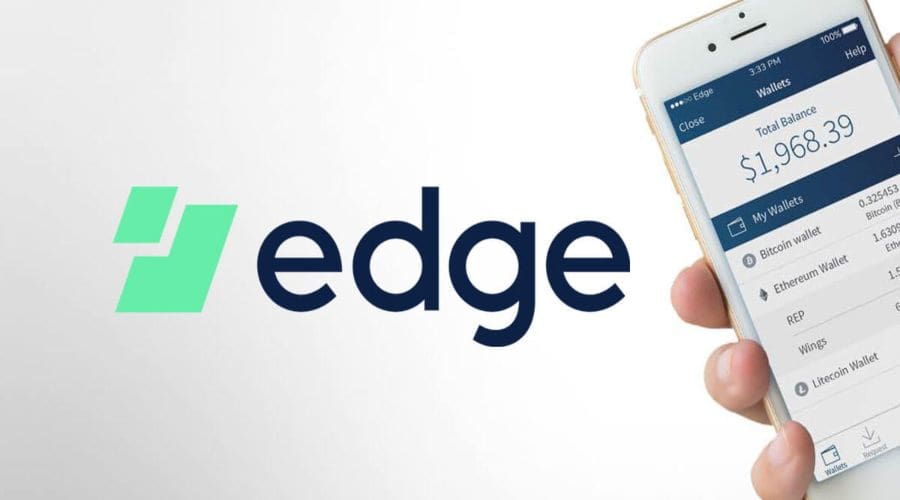
Edge is a mobile cryptocurrency wallet available for both Android and iOS devices. It features a straightforward user interface, and with its ShapeShift integration, it allows for spending, buying, and exchanging cryptocurrencies seamlessly.
Edge is distinguished by its robust security measures. As one of the premier non-custodial wallets, Edge ensures that data is encrypted on the device before it is transmitted to the wallet’s servers, making the edge server resilient against malware attacks. Only the user has access to the account information, and for an added layer of security, Google 2FA Authenticator can be utilized for logging in. This means that even if your username and password were to be compromised, your account remains secure.
Edge supports over 33 cryptocurrencies, catering to a wide range of users’ needs.
4.BitPay
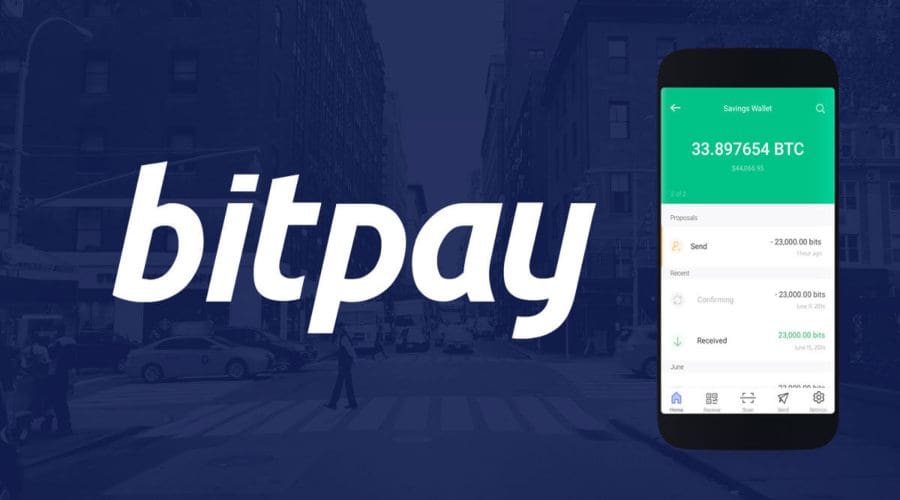
BitPay is an open-source, non-custodial Bitcoin wallet known for its high security level, alongside offering straightforward functionalities that facilitate Bitcoin trading. Users have the convenience of buying and selling Bitcoin directly via the wallet’s integrated exchange. The BitPay Visa Card, recognized by ATMs and businesses globally, simplifies the conversion of BTC to USD, making it more practical to spend BTC regularly.
Featuring multi-signature support, BitPay also incorporates 2FA authentication via Google Authenticator, enhancing security for its users. Designed with an intuitive interface and a user-friendly payment protocol, BitPay appeals to beginners. For those who frequently transact with Bitcoin, BitPay’s Visa card support presents an attractive option.
5.Coinomi
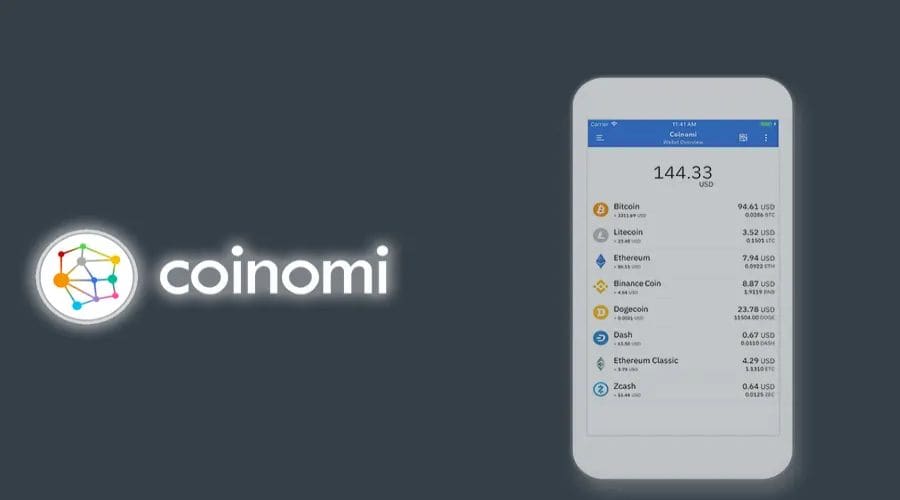
Coinomi is a secure, multi-chain crypto software wallet that supports over 130 blockchain networks and more than 1,775 cryptocurrencies. Offering SegWit transfers, Coinomi ensures transactions are executed both more affordably and swiftly.
Featuring comprehensive Web3 support, Coinomi includes a dApp browser, direct DEX integration, and facilitates in-app swaps. The application is accessible in more than eight languages, catering to a global user base.
Coinomi’s security measures are robust, with private keys stored on the device itself rather than on online servers, eliminating the risk of server breaches by hackers. Additionally, Coinomi is protected by a user-set password, meaning that even in the event of device theft, transactions cannot be executed without entering the correct password.
6.XDEFI
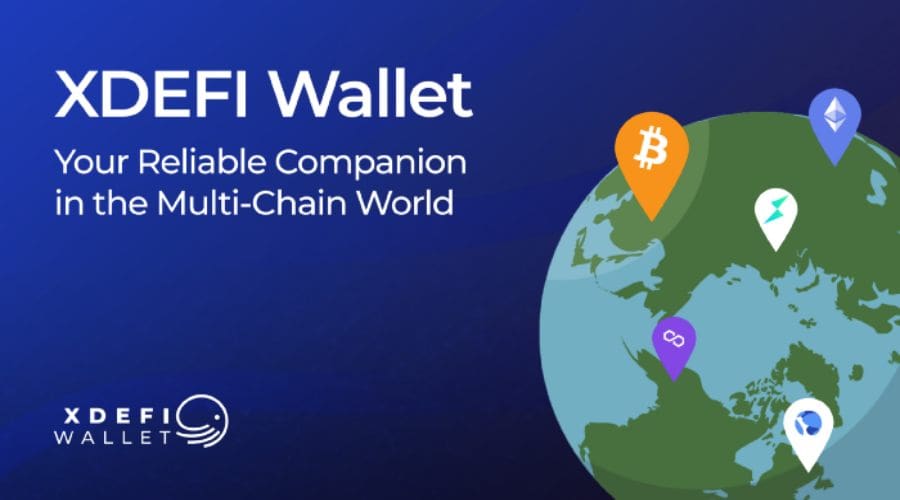
XDEFI is a blockchain wallet that supports 15 blockchains, designed to hold both cryptocurrencies and NFTs. XDEFI stands out by supporting networks like Avalanche, Thorchain, and Terra, which are not commonly supported by every wallet. It features a bridging mechanism that enables users to perform cross-chain swaps, facilitating the bridging of more than 10,000 cryptocurrencies.
The wallet allows users to display NFTs from Polygon, Fantom, Ethereum, Solana, Avalanche, Arbitrum, and BNB Smart Chain in their customizable unified galleries. XDEFI’s security architecture, audited by Kudelski Security, is considered best-in-class. Additionally, XDEFI offers a native token, also named XDEFI, which enables users to earn passive income through its staking mechanism.
7.Exodus
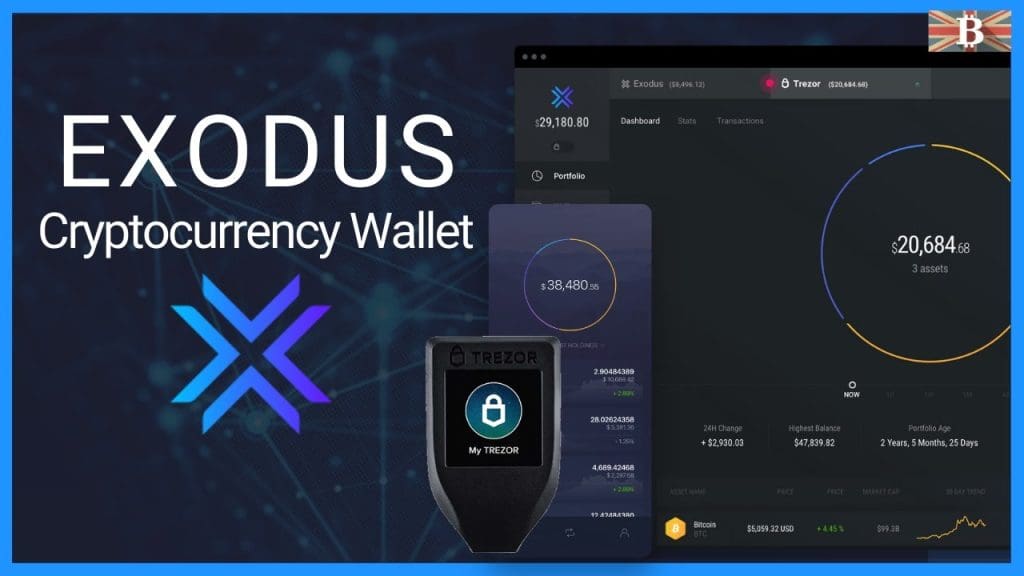
Exodus is a wallet specifically designed for those new to cryptocurrency investing. Although relatively new to the market, it is compatible with mobile devices as well as operating systems like MacOS, Linux, and Windows.
Furthermore, Exodus can synchronize with your Trezor wallet portfolio, enabling it to function as both a hardware and a digital wallet. Thanks to its integration with the ShapeShift exchange, users can effortlessly trade cryptocurrencies directly within Exodus. This built-in exchange functionality allows for easy cryptocurrency trading and viewing of your portfolio’s value with just a few clicks.
ShapeShift is not the only exchange integrated within Exodus; it aggregates prices from multiple exchanges to ensure users can trade at the best rates. A notable drawback of Exodus is its lack of two-factor authentication. However, all user data, including emails, is stored on the user’s computer or mobile device, not on Exodus servers.
Advantages of Exodus:
- Free to download and use.
- Supports over 185 cryptocurrencies.
- Available iOS and Android mobile apps.
Disadvantages of Exodus:
- Only a limited selection of cryptocurrencies can be traded through the third-party app.
- Fees apply for sending and receiving funds.
- Absence of cloud storage, necessitating application synchronization.
8.Metamask

Metamask is the most popular hot cryptocurrency wallet globally, particularly suitable for newcomers to dApps and Ethereum. It is available as software that can also be downloaded as a Chrome extension. With Metamask, your Ethereum (and other network) wallet is readily accessible in your browser, and for developers, it offers the capability to interact with Ethereum testnets.
Metamask simplifies the user experience, significantly reducing the entry barrier for those interested in Ethereum. It enables direct access to Ethereum dApps via your browser. Moreover, it allows for an effortless switch between the primary network and a testnet.
Metamask encrypts your private keys with a password and stores them on your device, making them available for export at any time. A notable advantage of this wallet is its ability to operate without the need to download a complete Ethereum node. Metamask also supports the management of multiple wallets from a single interface. However, it’s important to note that it doesn’t offer the same level of security as a hardware wallet or cold wallet.
9.Mycelium
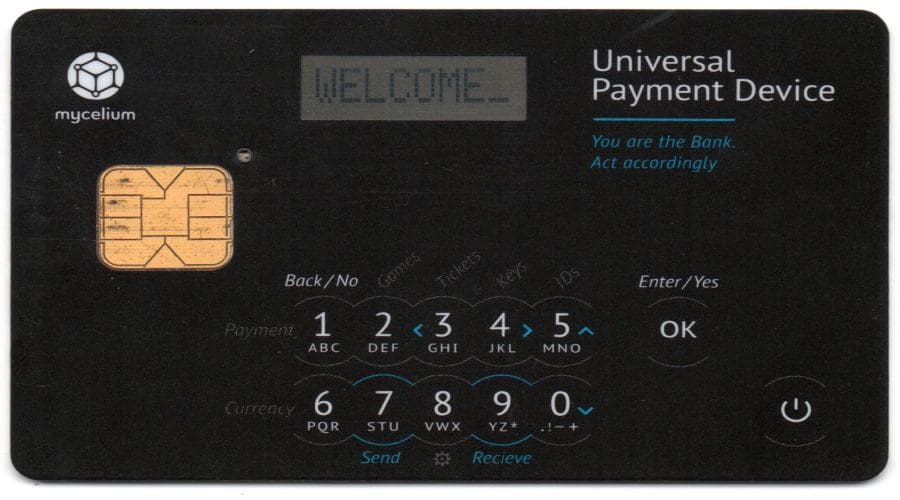
Mycelium stands out as one of the most secure and user-friendly wallets for mobile users. Compatible with both iOS and Android, it provides the convenience of managing your cryptocurrencies on the go. Similar to the Coinbase Wallet, Mycelium features an in-app crypto exchange for ease of trading. However, it limits its support to Bitcoin, Ethereum, and ERC-20 tokens, narrowing the range of tokens you can handle.
The wallet is equipped with impressive security measures, including multiple levels of PIN protection to add an extra layer of safety. Moreover, Mycelium gives users the flexibility to customize transaction fees according to their needs, offering different rates for low-priority, regular, economic, and priority transactions. Another notable feature is the “cold storage” capability, which enables users to securely store large quantities of cryptocurrency on external devices.
Advantages of Mycelium:
- Customizable transaction fees.
- Provides data backup in a reloadable format.
Disadvantages of Mycelium:
- Supports a limited selection of cryptocurrencies.
- Customer support is limited to email.
- Lacks a PC-based application.
10.Hi

hi is recognized as one of the premier crypto wallets for earning interest. It simplifies the process of sending, receiving, and earning cryptocurrencies. With hi, even those with minimal or no knowledge of cryptocurrencies can easily send and receive both crypto and fiat money from anywhere in the world. hi also facilitates the free conversion between fiat-to-fiat, crypto-to-crypto, or fiat-to-crypto at mid-market rates. The mid-market rate, being the median between the buy and sell prices of two currencies at any given time, represents the most equitable rate available.
At hi.com, users have the opportunity to generate passive income through various methods, including:
- Earning tokens by playing games, which can then be exchanged for ETH, BTC, or fiat currency,
- Inviting friends to join hi.com,
- Staking HI tokens to receive weekly stakes.
11.Atomic Wallet
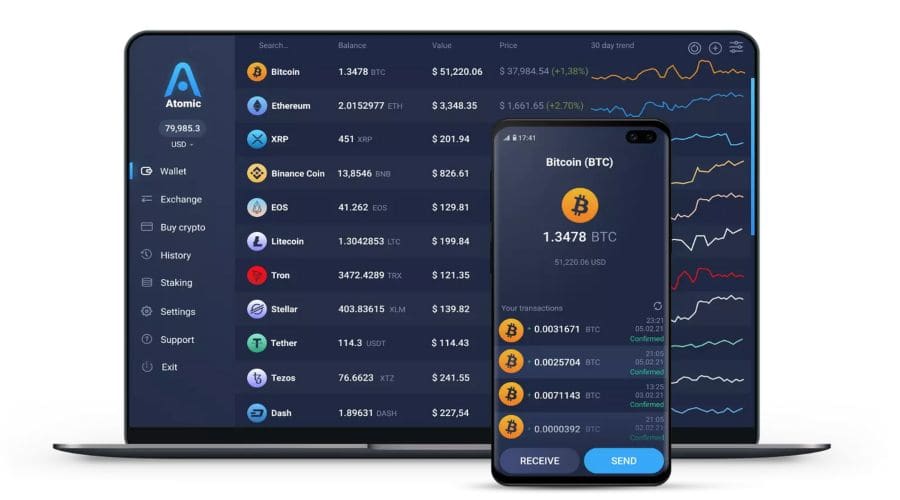
Atomic Wallet boasts impressive functionality, offering users the ability to buy, send, swap, and stake cryptocurrencies with exceptional security. It is a non-custodial wallet, ensuring your private keys remain on your local device. The wallet also prioritizes user anonymity, requiring no verification or account creation to begin. Simply download its native app and set up your wallet to start.
Striking a balance between features suited for beginners and those more advanced, Atomic Wallet supports over 550 crypto assets. It features an intuitive interface and the convenience of purchasing crypto directly through the wallet, bypassing the need to use an exchange and transfer coins back to your wallet. Notable among its functionalities are atomic swaps and staking support.
Atomic Wallet is available for download across a wide range of operating systems, including Android, iOS, macOS, Windows, and various Linux distributions like Debian, Fedora, and Ubuntu. Your keys are encrypted and safeguarded on your device, secured by a randomly generated 12-word passphrase. Currently, it lacks two-factor authentication and multi-signature capabilities. However, Atomic Wallet is planning to introduce new security enhancements soon.
12.Jaxx Liberty
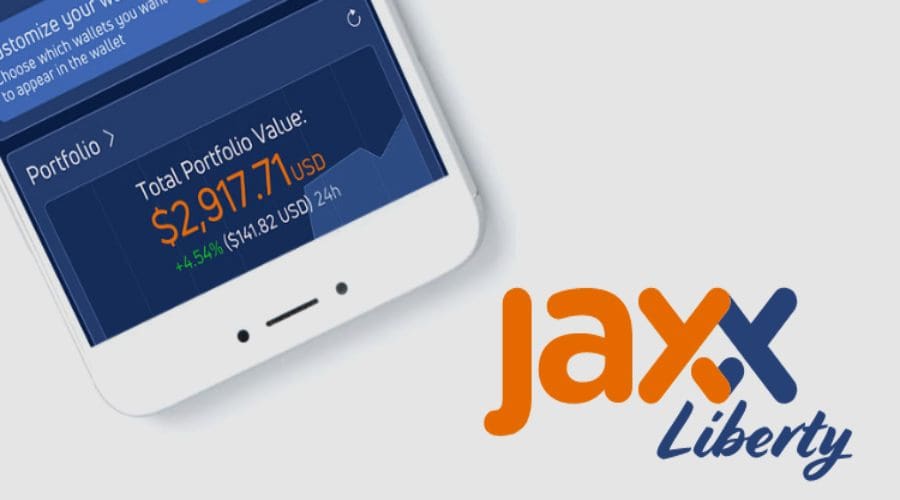
The Jaxx Liberty Wallet boasts an intuitive user interface and is compatible with a broad range of operating systems, including Android, iOS, macOS, and Windows. It also provides distribution-specific clients for various Linux distributions, such as Debian and the widely used Ubuntu desktop operating system.
A notable drawback of Jaxx Liberty is its lack of support for fiat transactions, meaning it does not facilitate the direct purchase of coins through the app using a credit card. Consequently, users must rely on third-party crypto exchanges for acquisitions. However, this often leads users to become acquainted with the ShapeShift exchange, which Jaxx directly integrates. ShapeShift is decentralized and offers support for over 800 different cryptocurrencies across 11 distinct blockchains.
Jaxx positions itself as a self-custodial wallet, putting users in complete control of their keys. However, Jaxx notably lacks features such as multi-signature transactions and, perhaps more unexpectedly, two-factor authentication.
13.Crypto.com
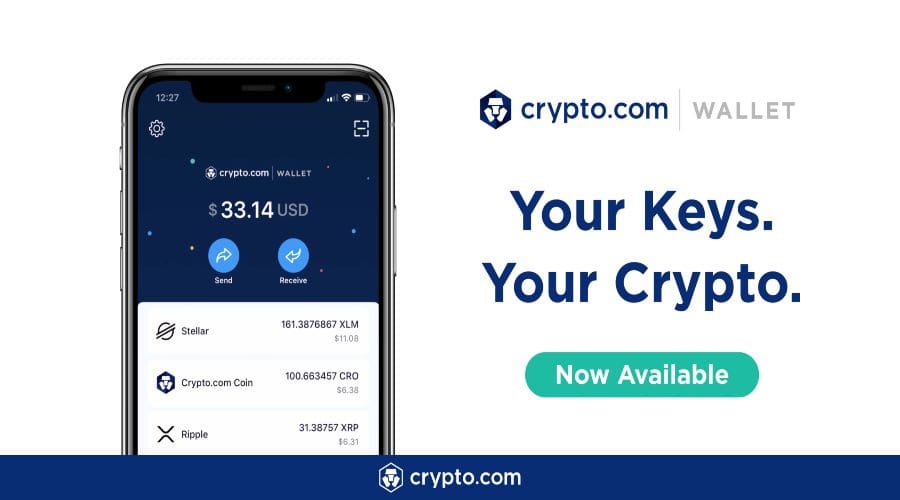
For the seasoned crypto enthusiast, Crypto.com offers an array of advanced features along with stringent security measures. The platform introduces two distinct decentralized wallet applications, ensuring transactions are exclusively peer-to-peer without the intervention of any third parties such as banks, stock exchanges, or government entities. This aspect is particularly appealing for those who prioritize privacy.
Conversely, Crypto.com’s other application serves as a gateway to the Crypto.com exchange, providing a more conventional experience. This setup is ideally suited for newcomers to crypto investing, offering brokerage services equipped with simpler and more familiar tools for purchasing and storing cryptocurrencies.
Although this app can function as a wallet, it relies entirely on the Crypto.com exchange for operation. In this arrangement, the key acts as your custodian, with your cryptocurrencies stored in a brokerage account rather than on a personal device. While this method is undeniably more convenient, it also introduces certain risks.
14.NRV
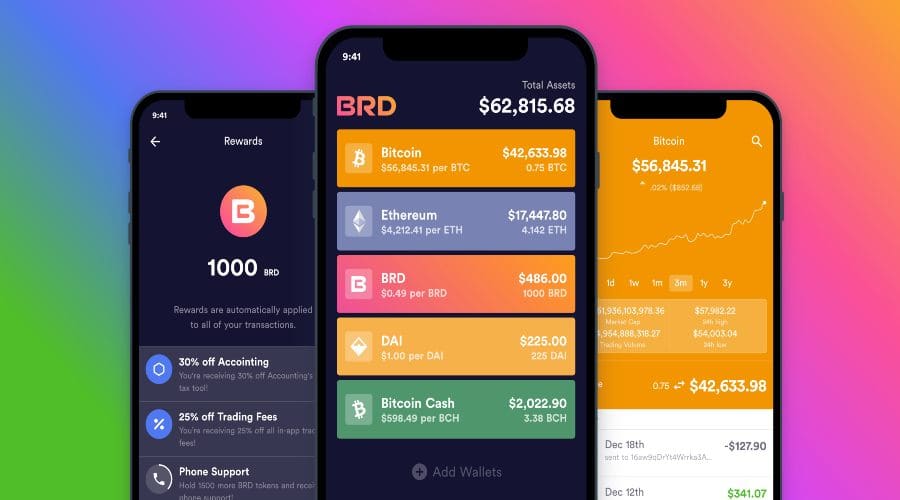
BRD is a widely-used multi-currency wallet, accessible exclusively on Android and iOS devices. It accommodates over 70 cryptocurrencies, including all major stablecoins.
Although BRD includes two-factor authentication, its security features are considered somewhat limited because it lacks support for multi-signature transactions. However, a notable security measure is its requirement for users to set an additional PIN and TouchID on both supported operating systems. On Android devices, keys are encrypted and stored on the phone, while on iOS, they are backed up to iCloud.
The wallet allows users to buy, sell, and trade directly within the app, and BRD also supports the importation of third-party wallets and balances via QR code. However, users should be aware that, although BRD does not impose transaction fees for outgoing transactions, it does levy fees on fiat transactions, such as purchasing crypto directly from the wallet using a credit card. According to discussions in third-party BRD groups, these fees can reach up to 7%, which is considerably higher compared to platforms like Coinbase.










